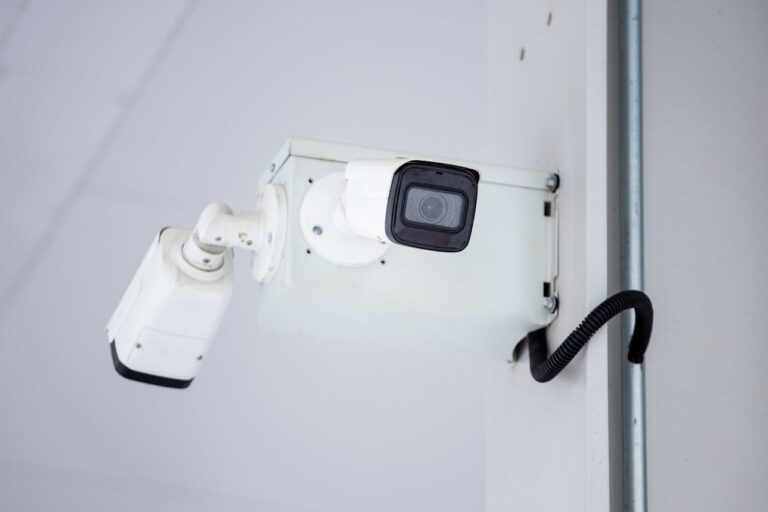
Property ownership isn’t just about getting rent paid or maintaining curb appeal. This also means you’re legally responsible for ensuring your building conforms to fire safety standards. In addition, the majority of fire code violations aren’t a result of deliberate intent; small oversights can result in huge responsibility.
In 2025, when local authorities tighten their enforcement and insurance companies become more lenient, the stakes for compliance are never higher. Whether you’re a landlord, commercial property administrator, or the owner of a service facility, if you don’t follow fire codes, it can put your reputation and finances on fire.
Everyday Habits That Lead to Fire Code Violations
Many homeowners do not realize they are violating fire codes despite having the best intentions. Maybe you have added some storage racks to an entryway or even left a door open to allow airflow. These options may appear harmless, but they could result in accidents waiting to happen.
The most frequent mistakes are:
● Blocking fire exits with equipment or furniture
● Failing to test smoke detectors regularly
● Skipping fire extinguisher inspections
● Installing non-compliant wiring or lighting
● Ignoring emergency lighting requirements
Each of these violations could be punished with fines, citations, or even worse a denial of insurance in the case of an incident like a fire.
Even the clutter itself can be an issue. Paper piles close to electrical outlets or extension cords that run over the walkways, or poorly stored chemicals, create dangers that inspectors have been trained to spot. If it looks like a shortcut, it’s probably a violation.
Why Fire Codes Differ By Location
One of the most misunderstood aspects of fire safety? It’s not universal. The fire codes differ by city, state, or even by type of building. A code-compliant building in one region of California could be in violation only two minutes away.
This is especially crucial when you’re managing multiple locations or buying a new property. Don’t assume your current setup meets the local code. The local Fire Marshal or a certified inspector looks over each area independently.
The National Fire Protection Association (NFPA) has a standard code. However, local authorities frequently modify the code. What is approved in Texas may not work for New York. This is why hiring a professional or a local fire code expert is worth every cent.
One Mistake Could Lead to a Lawsuit
Violating a fire code isn’t just a building issue; it’s a legal issue. If a fire incident occurs, the negligence due to non-compliance could land you in civil court. If the victim is injured or killed, the matter could be escalated into criminal charges.
If a tenant decides to disable the fire alarm due to it being too sensitive. if you, as a property owner, didn’t fix it or report the issue, and it was discovered later, you could be held guilty of knowingly disregarding the life-safety alarm. This goes beyond a code violation; it could trigger a lawsuit.

Why Tech is Your Best Fire Safety Ally in 2025
One of the simplest methods to ensure compliance in 2025 is to use technology that monitors inspections, schedules reminders, and records maintenance. Help contractors and homeowners keep records that show compliance.
By using electronic work orders and task scheduling, you are able to assign and confirm every aspect of fire-door inspections to alarm tests. This is not just a way to protect yourself legally but also gives you an audit trail whenever inspectors knock.
For multi-property owners, having centralized visibility across locations makes compliance manageable. Real-time dashboards and mobile-friendly apps mean no more binders full of loose paper logs or chasing down maintenance teams.
Smoke Detectors: More Than Just Beeping Plastic
It’s 2025. If you’re still relying upon old-fashioned smoke detectors that have no back-up battery or even interconnectivity, you’re putting your property and tenants at serious risk. Modern codes require wired smoke alarms with backup batteries, interconnected so that if one alarm goes off, they all sound.
Did you know the smoke detectors have expiration dates? The majority of them need to be replaced after 10 years. In the absence of doing this, it’s similar to installing a security system without turning it on.
Do not wait for the smoke smell to test your fire safety. Make a plan for annual inspections and repairs whenever necessary. Include this in the scope of the preventative maintenance program that is tracked electronically.
Electrical: The Most Overlooked Danger Zone
Fire inspectors consistently flag electrical setups as one of the top hazards. They’re usually altered, redesigned, or omitted completely.
Here are some warning signs:
● Extension cords used as permanent wiring
● Open junction boxes with exposed wiring
● Overloaded circuits powering HVAC or commercial appliances
● DIY fixes that bypass professional permits
If you employ a contractor, be sure they’re licensed and are familiar with local codes. Also, keep the records. If something goes wrong, and you are unable to prove that the work was carried out properly, the blame falls on you.
It’s also smart to schedule periodic electrical audits. A licensed electrician can identify overload risks, outdated panels, and incompatible components that often get missed during renovations.
What Inspectors Look For
A few homeowners think inspectors are simply box-checkers. However, inspections of fires are more detailed and becoming increasingly digital. Many jurisdictions use electronic inspection reports, which are archived and cross-referenced with previous inspections.
Here’s what inspectors typically flag:
● Fire extinguishers that are expired or untagged
● Blocked or mislabeled emergency exits
● Sprinkler heads that are painted over or obstructed
● Missing or expired permits for recent renovations
● Lack of staff training in fire safety procedures
Failure to pass even one of these could lead to the “failed inspection” status, which limits your options to rent space, renew your insurance, or sell your property.
Staff Training Is Non-Negotiable
The right equipment in place is the first step. Ensuring that people are aware of how to utilize it is the second step. A lot of fire codes require frequent training for staff, particularly for multi-unit and commercial properties.
Include it in your routine maintenance schedule for each quarter. Extinguisher training, fire drills, and review of the evacuation map aren’t just good practices. They’re a way to demonstrate compliance.
Utilizing software helps keep these tasks in line with the schedule and records. This way, you’re not dependent on your sticky notes or memory in the event of compliance deadlines.
Common Myths That Can Get You Fined
Let’s dispel some of the most dangerous assumptions:
● “If it passed inspection last year, it’s fine this year.” Fire safety codes change frequently.
● “I rent the building out, so it’s not my problem.” The responsibility often is on the property owner.
● “It’s just a small violation.” The “small” detail could void your insurance.
● “No one uses that back exit anyway.” It doesn’t matter. It still must be accessible.
● “I’ll fix it after the busy season.” Violations don’t take holidays.
Don’t Rely on Memory for Fire Safety Checks
With so much going on, no property manager has time to remember every single fire safety check. That’s why smart teams like Field Promax come in; they will remind you about fire extinguisher checks, smoke detector tests, and emergency lighting inspections, all before overdue and alert your team without the use of sticky notes.
Here’s how it makes life easier:
● Set recurring fire safety tasks
● Get notified before deadlines
● Keep cloud-based inspection records
● Prove compliance during audits
Also Read: Why Trust Fire Damage Recovery Specialists in Austin, TX?
Final Thought: Compliance Isn’t a One-Time Job
It’s like flossing; it’s easy to overlook until you have an issue. By then, it’s too late. Don’t think of compliance as a single-time project but rather as a system that requires constant attention.
Inspections, documentation, and training are an integral part of your operational routine. Make use of digital tools to automate routine tasks so that you don’t let anything slip through the cracks.
In this world, fire code violations are not excusable. ‘I didn’t know’ won’t hold up in court.








